With calm blue waters, hidden coves, and pastel towns, Bermuda offers more than just pretty beaches. This guide covers where to stay, what to see, and how to enjoy the island at your own pace.
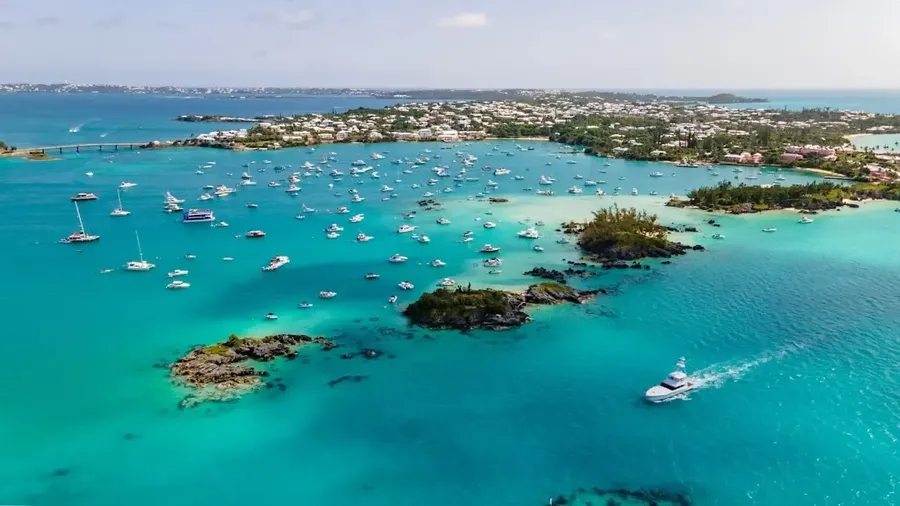
Unlike other islands, Bermuda has no rainy season as rainfall is spread fairly evenly throughout the year. The best time to visit is from mid March to early June and again from late October to late December, when the weather is warm, the crowds are smaller, and conditions are ideal for outdoor activities. Average daytime temperatures during these periods range from 70°F to 85°F (21°C to 29°C).
Bermuda is compact, easy to navigate, and offers a mix of beachside resorts, quiet guesthouses, and upscale hotels. Most places to stay are on the main island, close to beaches, restaurants, and ferry access. Whether you want ocean views, a peaceful setting, or quick access to shops and transport, below are a few areas we recommend.
The capital area offers a central location with shops, dining, and easy transport connections. Hotels here are close to the city’s harbor, ferry terminal, and public bus routes, making it convenient for exploring the island. This area is also home to nightlife, galleries, and some of Bermuda’s best restaurants.
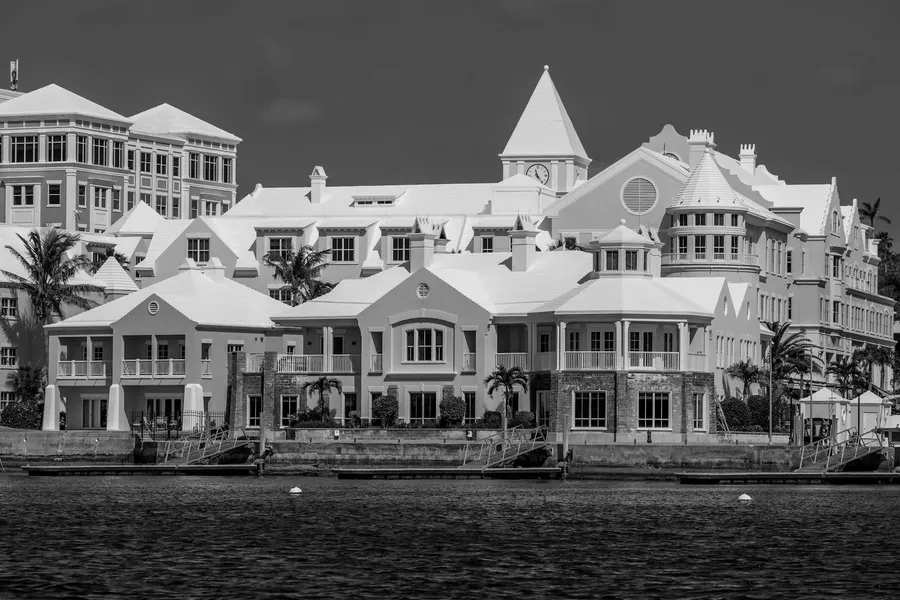
Hamilton, Pembroke Parish, Bermuda
This stretch is home to many of Bermuda’s top beaches, including Horseshoe Bay and Warwick Long Bay. You’ll find a mix of beachfront resorts, boutique hotels, and quiet inns with views of the turquoise water. It's a great area for travelers who want direct beach access.
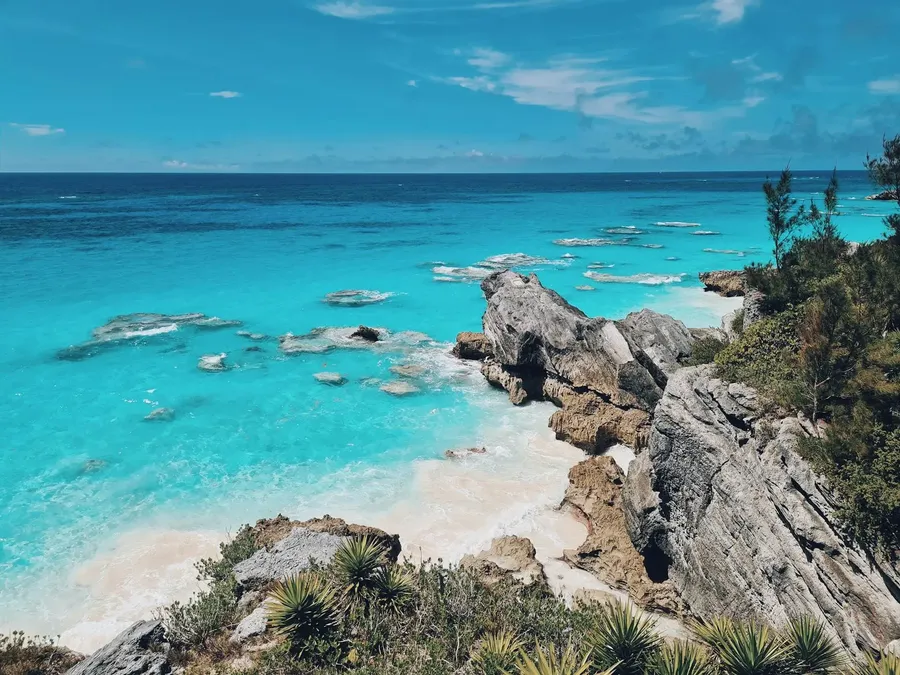
Southampton, Bermuda
Bermuda is generally considered a safe destination for travelers, with low rates of violent crime. Most visits are trouble free, and the island is known for its friendly and welcoming atmosphere. Petty crime like theft or pickpocketing can occur, especially in busier areas, so basic precautions are advised.
Bermuda is full of things to see, from underground caves and ocean views to old towns. The island’s compact size makes it easy to explore several key spots in one trip. Whether you're into history, nature, or just taking in the view, there are places here worth your time.
These caves are filled with clear blue pools, hanging rock formations, and quiet underground paths. Discovered over a century ago, they’re one of the island’s most unique attractions. Guided tours help you explore safely while learning about their history and geology.
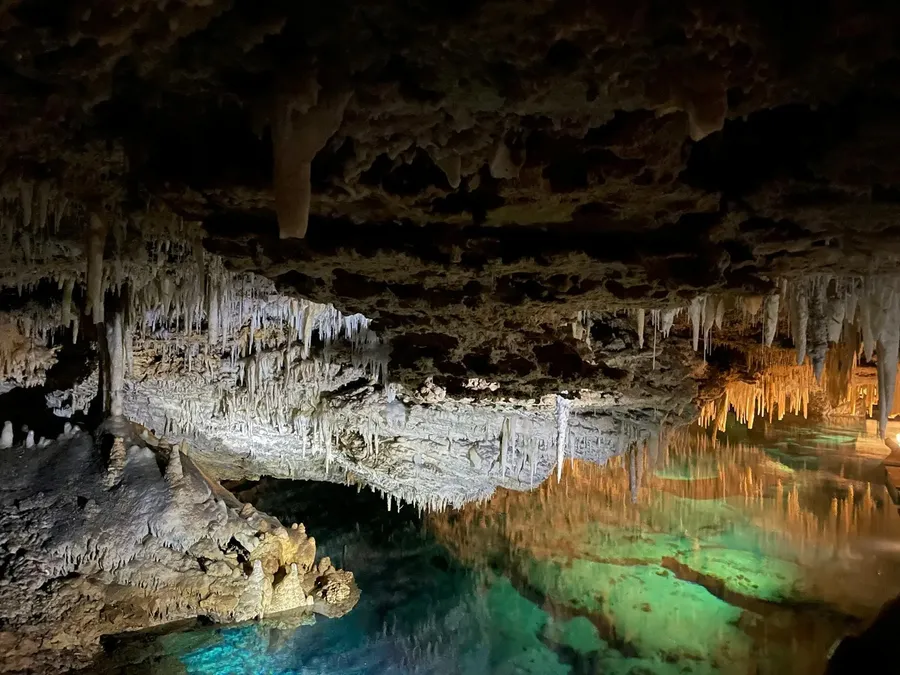
Crystal Cave, Bermuda
Horseshoe Bay is one of Bermuda’s most well known beaches, with soft pink sand and calm, clear water. It’s good for swimming, walking, or just spending time by the sea. Lifeguards, restrooms, and rentals make it easy to enjoy for a full day.
Spittal Pond is one of Bermuda’s largest and most important nature reserves, located in Smith’s Parish. Known for coastal trails, birdwatching, and seasonal pink water displays, it’s a peaceful spot for walking and spotting local wildlife.
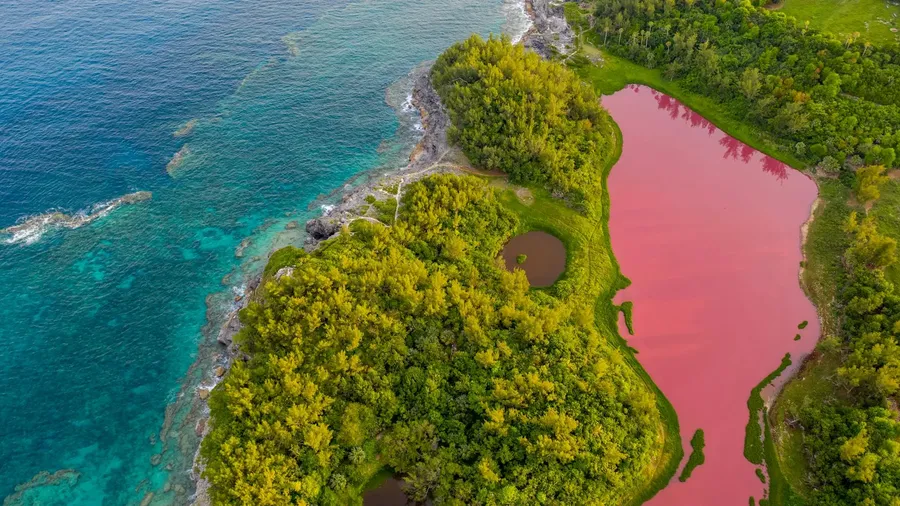
Spittal Pond, Bermuda
This is the oldest town in Bermuda and a UNESCO World Heritage Site. The streets are lined with stone buildings, old churches, and small museums. It’s a quiet place to walk around and get a feel for the island’s past.
Bermuda’s nightlife is casual and social, with a few main areas offering bars, music, and evening spots to relax or dance. Most activity happens around Hamilton, with smaller scenes in the Dockyard and St. George’s.
Bermuda is located in the North Atlantic Ocean, about 600 miles east of North Carolina in the United States. It is not part of the Caribbean, although it shares a similar climate and island lifestyle. The territory is made up of over 60 small islands and islets, with the seven largest connected by bridges and causeways. Despite its remote position, Bermuda is well connected by air and is a popular stop for cruises.
You can spot migrating humpback whales near Bermuda each spring.
Actor Michael Douglas has family ties to Bermuda and often visited growing up.
The island is at the tip of the famous Bermuda Triangle, known for mysterious disappearances.
Bermuda has no rivers or lakes.
Locals proudly call themselves "onions" because Bermuda was once a major exporter of onions in the 1800s.